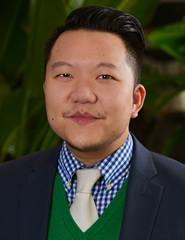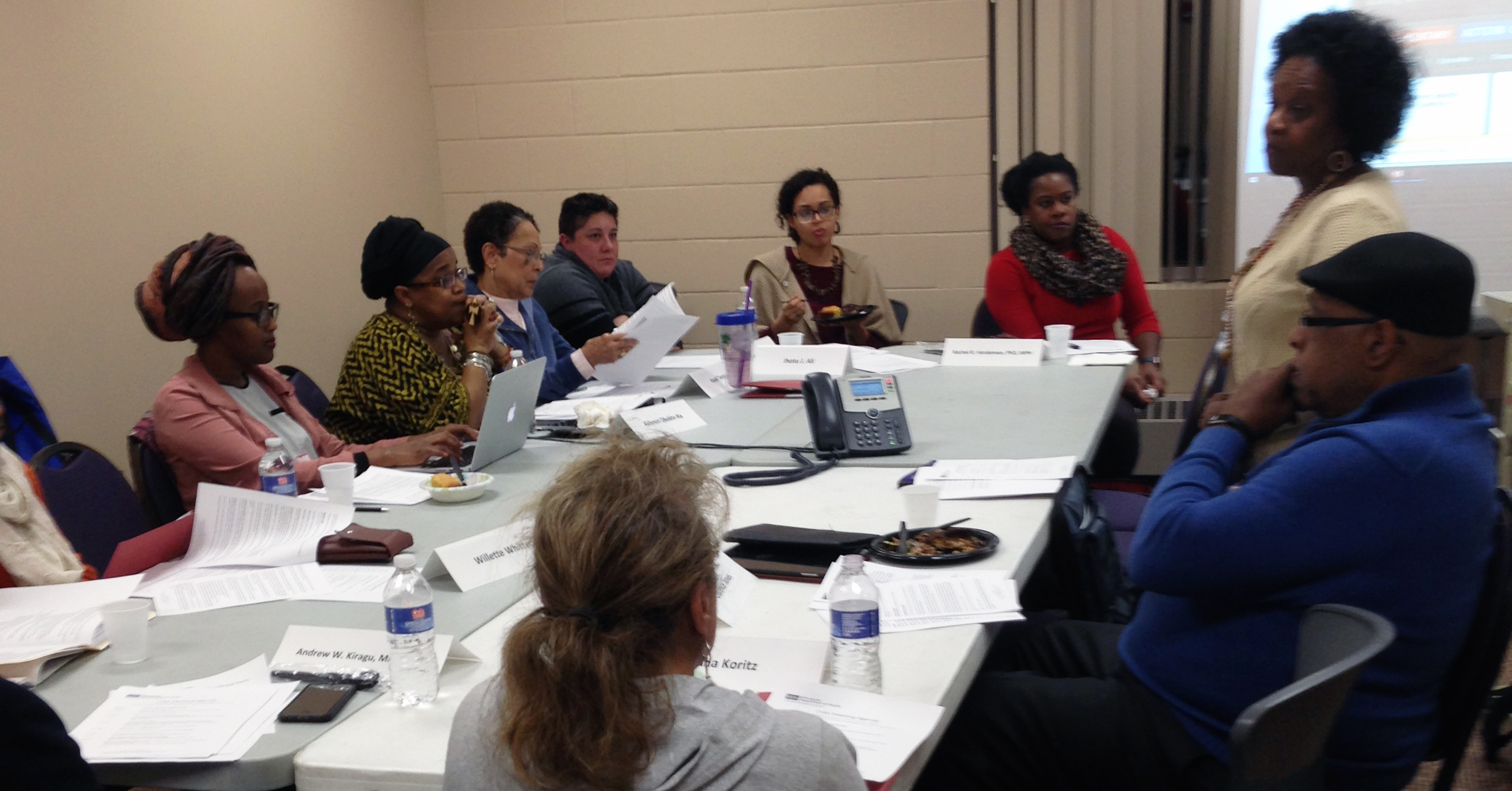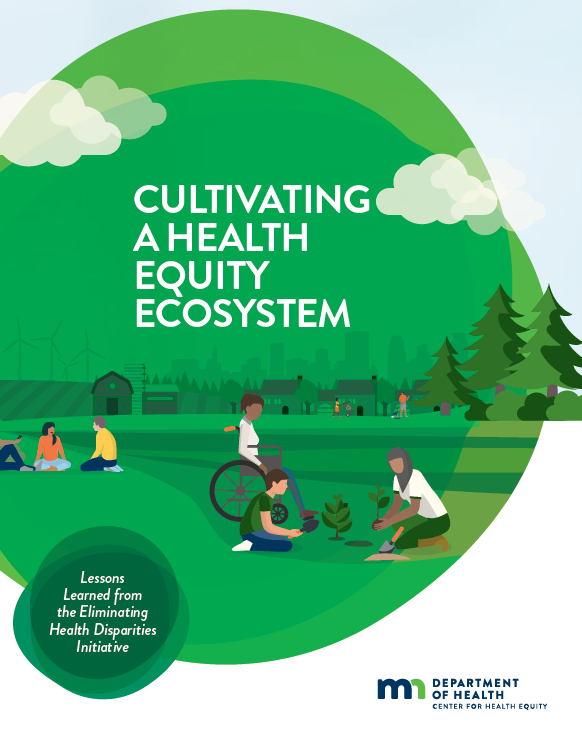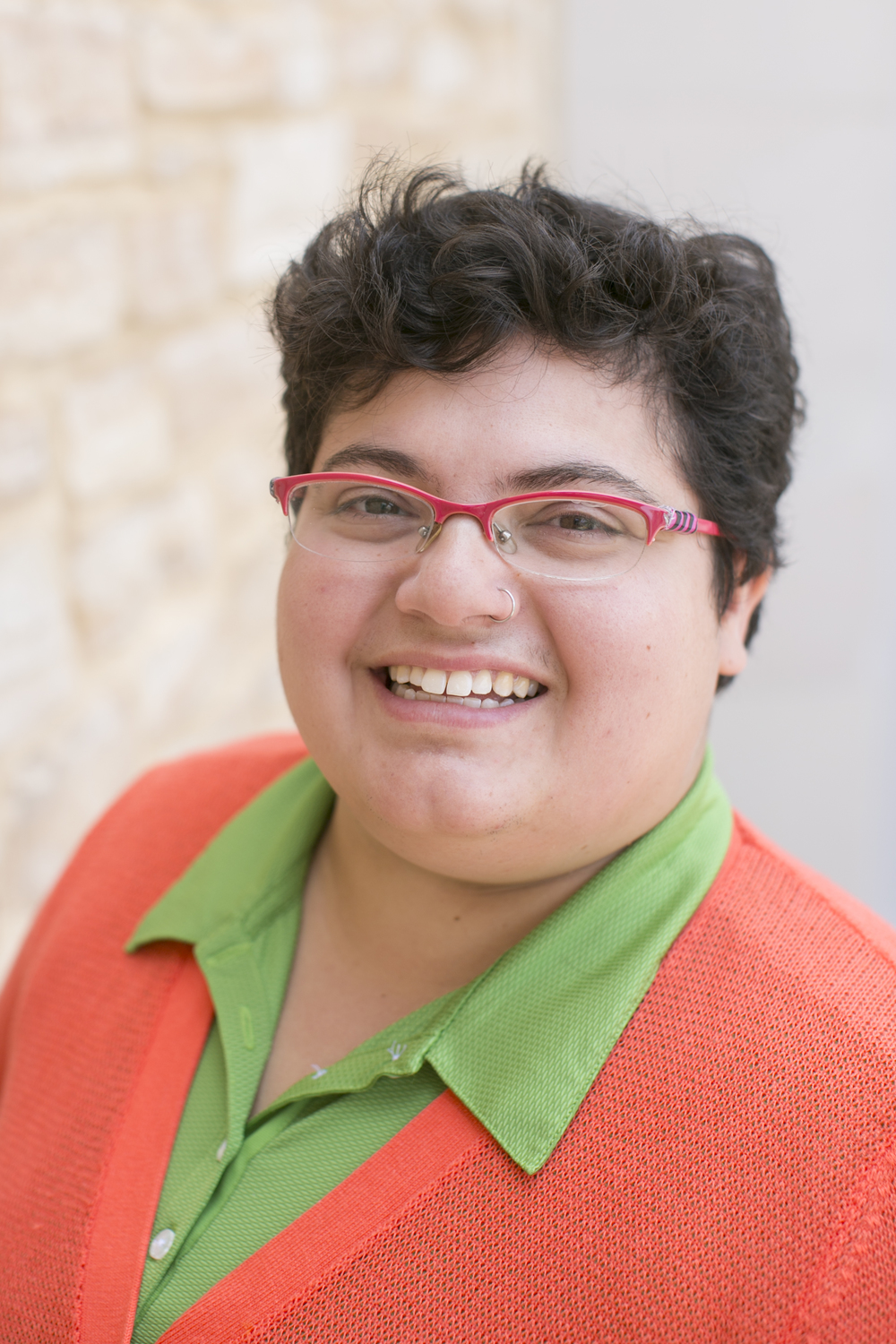Center for Health Equity Newsletter
August 2020

In this newsletter:
Greetings from the Center for Health Equity
Message from the Director
CONNECT: Five-year infant mortality project comes to a close
STRENGTHEN: New report released as EHDI 20th anniversary approaches
AMPLIFY: Pride 2020: Praise to the Trancestors
Greetings from the Center for Health Equity
While our state, country, and world continue to battle the COVID-19 pandemic, we at the Center for Health Equity (CHE) would like to share some key programmatic updates in this end-of-summer newsletter.
First, we’d like to extend a big CHE welcome to our newest cohort of grantees for the new Community Solutions for Healthy Child Development grants. The 23 grantees span both Greater Minnesota and the metro area and are organizations and tribes led by and serving communities of color or indigenous communities.
The work of the grantees will include providing cultural education for childcare providers; expanding trainings for family, friends, and neighbors as childcare providers; doula services; culturally tailored family home visiting; and reconnecting families with cultural values and language. While this grant program will necessarily look different than we expected due to COVID-19, we are eager to work alongside the grantees to imagine creative solutions for child development during and beyond this pandemic.
For more information and a list of the new grantees, please visit the Community Solutions for Healthy Child Development webpage.
Read on below for additional updates, including the end of a 5-year project to address high infant mortality rates among U.S.-born African Americans living in Hennepin County and the release of a new report on lessons learned from nearly 20 years of the Eliminating Health Disparities Initiative (EHDI). This edition also features a guest story by Shor Salkas: Pride 2020: Praise to the Trancestors.
Interested in being a guest writer for a future newsletter?
Email your idea to health.equity@state.mn.us and we will be in touch!
Message from the Director
 Since June, I have been redeployed to the State Emergency Operations Center (SEOC) Community Testing Work Group. The SEOC is comprised of multiple state agencies who have come together to respond to COVID-19. The Community Testing Work Group is a subset of the SEOC’s broader Testing Work Group, with the daunting task of providing testing across the state to multiple populations. The Community Testing work group’s goal is to provide “no-barriers” testing to people of color, American Indians, LGBTQ communities, and disability communities.
Since June, I have been redeployed to the State Emergency Operations Center (SEOC) Community Testing Work Group. The SEOC is comprised of multiple state agencies who have come together to respond to COVID-19. The Community Testing Work Group is a subset of the SEOC’s broader Testing Work Group, with the daunting task of providing testing across the state to multiple populations. The Community Testing work group’s goal is to provide “no-barriers” testing to people of color, American Indians, LGBTQ communities, and disability communities.
There are a few lessons I’ve learned thus far that I would like to share:
- This isn’t easy. It comes as no surprise that the pandemic has forced us to quickly launch emergency operations to a scale many of us have not seen before. Community testing, particularly when we are hoping to engage those most impacted by inequities, requires much more than simply making testing available. To be successful, it requires planful partnership with trusted community leaders to repair centuries of mistrust between communities and those who have sought to “perform tests” on us. The historical trauma our communities have faced is not lost on me and my team. We hold the balance and tension between wanting to get testing out quickly to our communities, while at the same time recognizing that it takes time to activate partnerships, do culturally responsive outreach, and build and maintain trust with our communities.
- We need to do much more. In about two months we have been able to provide free, no-barriers testing to over 20,000 people across the state. We have used data-driven methods to identify areas in need of testing and paired that with local expertise of what is happening on the ground in neighborhoods and counties. Yet we also know we have much more to do and that many communities are suffering across the state. We are quickly building our capacity and scaling our testing plan and strategies. We know it is not fast enough. We are playing catch up with a deadly pandemic. But we will not give up and we will continue working to get testing to communities who need it.
- We cannot do this without you. Community testing is not successful without the community. Our community partners helping plan testing events and coordinating outreach are critical to the success of these events. We know there is much stigma and fear about testing. We know there are multiple barriers around cost and access depending on where you get tested. We are working to address those barriers. But you are our greatest hope in addressing stigma and fear. By spreading messages to promote testing and to calm fears, wearing masks, and promoting social distancing, we have a chance to slow the spread. We have a chance to move past this and reclaim the things most dear to us—our families, our friends, our ability to hug, dance, and play. It will take all of us doing our part to get through this.
To learn more, visit our Community Testing webpage (the page is translated into Spanish, Somali and Hmong). A huge thank you to the more than 100 COVID-19 contractor organizations who have worked with us over the past few months to do this critical work of educating, engaging, and informing our communities about COVID-19 testing and resources.
Kou Thao
Director, Center for Health Equity
CONNECT
We are a network hub – leading, connecting and strengthening networks of health equity leaders and partners across MDH and Minnesota communities.
Five-year project to address African American infant mortality comes to a close
After five years of intentional relationship building, visioning, hard work, and lessons learned, CHE’s African American Infant Mortality project has come to a close. With funding from the Office of Minority Health at the U.S. Department of Health and Human Services, the project used a health equity approach and community engagement model to address the wide spectrum of factors contributing to high infant mortality rates among U.S.-born African Americans living in Hennepin County.
 Under the bold leadership of Community Voices and Solutions (CVAS), the project brought together the perspectives and experiences of a community disproportionally impacted by health inequities to better understand the root causes of African American infant mortality. Together, the group dismantled power imbalances by supporting on-the-ground efforts to create policy and systems changes, introduced a midstream/upstream approach to prenatal care in clinical settings, offered healing from historical trauma arising from racism experienced by black birth workers, and broke down silos that hindered collaborative efforts around infant mortality. In reflection, CVAS members expressed their deep appreciation for being heard and using the strength and dedication of community to do the work.
Under the bold leadership of Community Voices and Solutions (CVAS), the project brought together the perspectives and experiences of a community disproportionally impacted by health inequities to better understand the root causes of African American infant mortality. Together, the group dismantled power imbalances by supporting on-the-ground efforts to create policy and systems changes, introduced a midstream/upstream approach to prenatal care in clinical settings, offered healing from historical trauma arising from racism experienced by black birth workers, and broke down silos that hindered collaborative efforts around infant mortality. In reflection, CVAS members expressed their deep appreciation for being heard and using the strength and dedication of community to do the work.
The following documents produced by the project are available on our website as a resource for others working to improve birth outcomes:
- A New Narrative for Addressing African American Infant Mortality
Documented stories of Black women’s personal experiences, including the following videos:
- Recommendations from co-learning participants specific to their policy and systems change projects:
- The project had a community co-learning component that recruited community members to receive training on various topics related to health equity and African American infant mortality. The cohorts developed and implemented mini projects focused on policy and systems change.
- For example, one project worked to enhance Minnesota’s community health worker curriculum to include more instruction and training on maternal and child health. Read the Enhancing Minnesota’s Community Health Worker (CHW) Curriculum report on the project website.
- Another used community radio to increase access to health information and to promote the role of men in pregnancy. Learn more in the report: A Real Conversation about Men and Pregnancy Mini Project.
- A Social Determinant of Health (SDOH) Framework for Addressing African American Infant Mortality (coming soon)
- Proposed Strategies for Addressing African American Infant Mortality (coming soon)
Funding may have ended, but the project goals, principles, and values remain front and center. CVAS designed a sustainability plan calling for continued community involvement through the Integrated Care for High-Risk Pregnancies (ICHRP) program at the Department of Human Services. A number of CVAS members will become part of the ICHRP board (a few CVAS members were already serving on ICHRP’s advisory group) and will build on the project’s successes.
We would like to give a heartfelt thank you to all of our partners for taking this journey with us: to CVAS for taking the driver’s seat, and to other partners for coming along on a memorable ride that, owing to your tireless commitment, will now keep on chugging along.
STRENGTHEN
We provide leadership in advancing health equity and cultivate health equity leaders within MDH and across Minnesota communities.
New report: Cultivating a Health Equity Ecosystem: Lessons Learned from the Eliminating Health Disparities Initiative

Since we wrote the report, a lot has changed in the past few months. We witnessed COVID-19 ravage our communities and lay bare the systemic inequities that perpetuate health disparities. The world watched as George Floyd was murdered in our backyard and our cities burned. We are trying to process our pain and grief in the midst of the pandemic. Yet we have also seen our communities mobilize to support one another, push for justice, and rebuild. Given all of this, we at the center have struggled with how and when to release this report. However, in reviewing the takeaways from the report, we realized the lessons we have learned from our community partners are relevant now more than ever.
We are deeply grateful for the leadership of our grantees over the past two decades; they have paved the way to ensure our communities have the resources, access and services needed to create their healthiest futures. Grantees have also had profound impact on systems change at multiple levels. The state’s investment in EHDI has resulted in outcomes that cannot be quantified in metrics alone. We also recognize EHDI is one element within a complex ecosystem that requires many entities working together in order to truly achieve health and racial equity in Minnesota.
We are pleased to share this report: “Cultivating a Health Equity Ecosystem: Lessons Learned from the Eliminating Health Disparities Initiative.” If we have learned anything from the last few months, it is that we will not see an end to structural inequities unless systems and institutions recognize their role in perpetuating inequities, share power and collaborate across sectors, and move to invest significantly more in community-driven solutions. Please join us in spreading this report widely.
We also invite you to join a webinar on Wednesday, September 16 from 1-2 pm to walk through the report and the lessons learned. Please register for the webinar on the Cultivating a Health Equity Ecosystem report webpage.
A huge thank you to our EHDI grantees past and present and the many staff and partners who worked tirelessly to put this report together.
AMPLIFY
We amplify the work of communities most impacted by health inequities and support them to drive their own solutions.
Pride 2020: Praise to the Trancestors
By Shor Salkas
Time has both sped up and slowed down during our COVID-19 world and with the uprising to demand justice for George Floyd and all the Black and POC beloveds who have experienced violence at the hands of the state. It is wild to think about the fact that usually in June days are filled with planning for Pride, being at events, organizing with community, and being with family and friends and community to commemorate and celebrate our ancestors’ fight for justice at the Stonewall Inn and in innumerable ways since then.
 Pride has been different this year, but then again, everything is different this year. As we reflect on what Pride means to each of us, it is important to understand the two women who started it all – Marsha P. Johnson and Sylvia Rivera (pictured to the right). These women are the backbone of the movement for LGBTQ justice and rights, and these often unsung heroines are deeply relevant today in the struggle we are currently living through with COVID-19 and the uprising to demand justice.
Pride has been different this year, but then again, everything is different this year. As we reflect on what Pride means to each of us, it is important to understand the two women who started it all – Marsha P. Johnson and Sylvia Rivera (pictured to the right). These women are the backbone of the movement for LGBTQ justice and rights, and these often unsung heroines are deeply relevant today in the struggle we are currently living through with COVID-19 and the uprising to demand justice.
Both of these women were trans women of color, Marsha a Black woman, and Sylvia a Latina woman. Together, they took to the streets after incredibly violent policing of New York City gay bars and organized hundreds of others stand up to police brutality. The first and most canonized moment in the modern LGBTQ rights movement, Stonewall, was a riot and an uprising against police brutality led by trans women of color. We are living in a moment where transgender people have somewhat more visibility and somewhat more acceptance in society at large, due to the fact that these women and so many other transgender women of color labored for our communities to be seen, heard, and acknowledged. Gratitude runs deep for this history and for our transcestors (trans ancestors).
If you are wondering what this has to do with public health, it has everything to do with our work. MDH’s vision is to achieve health equity for all Minnesotans, and LGBTQ communities are a vibrant and important part of our state and our communities. LGBTQ communities have been advocating and fighting for decades to be counted in national, state, and local data collection and assessments. Our communities are facing incredible disparities and inequities across multiple disease burdens (HIV, many forms of cancer, diabetes, heart disease), many risk factors leading to health disparities. Many of the disparities and increased risk factors are rooted in decades of discrimination, stigma, and stress. Our communities have long been facing discrimination in accessing health care and public health programs, and it is our job as public health professionals to make sure that LGBTQ people are counted and visible and getting the services and care they deserve whether it is related to COVID-19, accurate data about our communities, at our advisory tables, being funded to do work in communities. Similarly to how we do individual and systemic work to combat racism, each and every one of us can take a deeper look at what we understand and don’t yet understand related to sexual orientation and gender identity, and how systemic transphobia and homophobia impact our state.
As always, there is a lot to do and explore to make our state more equitable.  Please take care and comfort in knowing that this is a lifelong journey of deepening understanding and fighting for justice and access, following the legacy of our trancestors Marsha and Sylvia all those years ago.
Please take care and comfort in knowing that this is a lifelong journey of deepening understanding and fighting for justice and access, following the legacy of our trancestors Marsha and Sylvia all those years ago.
Shor Salkas (They/Them) is a LGBTQ Communities Liaison and Health Equity Planner in the Center for Public Health Practice at the Minnesota Department of Health.